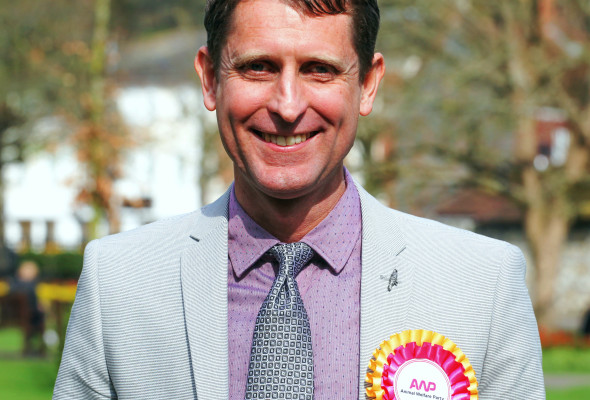We recently had the opportunity to view new, short documentary film
Becoming Vegan. Such a topic originating from the local university and featuring two members of the recently revived
Veg Soc meant that we would obviously be inclined to check it out.
Given it's status as a student project that was made on a small budget we obviously weren't as keen to assess the production and presentation (perfectly adequate) as much as the message. How would the film portray veganism?
We get off to a very shaky start. A nutritionist is called upon to define veganism, thus perpetuating the idea that we are dealing with a diet rather than an ethic. What was needed is the definition as laid down by The Vegan Society and an expression of the belief that other animals are not ours to exploit.
The presenter (Rachael) will undertake a two week dietary challenge, the nutritionist warns that a sudden change in diet is likely to be felt negatively by the body and after all they do say it
takes a month to adjust to any new habit.
We are now in the supermarket aisles and two random microwavable ready meals are held up, one contains milk protein and the other is free of animal products. The later is more costly so our host concludes that "vegan food" is seemingly more expensive. Seriously.
There are constant references to "gluten free" and "wheat free", which along with the difficulty in having to read labels adds to the general feeling of ascetic misery experienced during the experiment.
This is puzzling, either Rachael believes that veganism entails being gluten free or this is a personal choice, either way it should be made clearer. She is intrigued to try "vegan pasta" as opposed to normal pasta. This involves getting a supermarket Free-From brand that she has heard will be chewy due it's lack of gluten. Clearly most standard pastas, whether white or brown are suitable for vegans seeing as wheat is a plant. The occasional exception exists for fresh pastas which may contain egg.
The perceived deprivation continues in the morning when the cereal has to be gluten free also and as such is described as "powdery." Sandwiches for lunch? Of course not, only cereal bars and snacking on fruit as others enjoy their wheat bread. Again, veganism is concerned with products of animal exploitation and wheat avoidance isn't part of the deal.
Cupcakes are handed out from Bailgate's vegan shop, will the public spot the differences to "real" cakes? The assumption being that no eggs and/or dairy clearly renders cupcakes counterfeit. Given the prior warning that these are vegan cakes the public seem hesitant to tuck in (lacking the prerequisite chicken ovulations and bovine mammary secretions to make them optimally palatable) but conclude that they are in fact genuine cakes and perfectly edible.
Unsurprisingly Rachael is feeling lethargic as she goes into calorie deficit. Her previous diet was replete with animal products and cooking a meal without flesh a foreign concept. To conclude she accepts that without the ethical beliefs this lifestyle shift seems superfluous and inconvenient. It is repeated twice that she doesn't "believe in" vegan ethics, presumably content to provide demand for the unnecessary suffering of other sentient beings. As stated earlier by it's definition veganism requires the moral foundation and as such the documentary would have been better titled "Becoming Plant-based".


